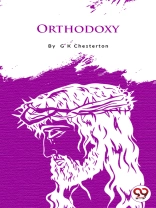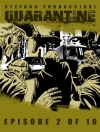Orthodoxy is a nonfiction book written by G.K. Chesterton. He was an English writer and critic of the mid-twentieth century. He was a productive author who wrote over 100 books and added to no less than 200 additional during his lifetime. His book, "Orthodoxy", contends that Christianity is an extraordinary religion since it provides us conviction about our purpose in life.Orthodoxy is a book that explains why Christianity has been around for such a long time and continues to be significant in the present society. It uses common sense and everyday perceptions to explain its thoughts regarding human nature and the advantages of living an ethical life. G.K. Chesterton criticizes present-day philosophers for deleting religion from their lives and urges individuals to question everything, including religion.Chesterton starts by evaluating fairy tales, however, he explains why they're valuable. Basically, God doesn't want us to understand the reason for our existence. Chesterton says that fairy tales are black and white. Fantasies either overstate trust or depression.He uses the example of martyrs and suicidal people as inverse samples of extreme optimism and pessimism respectively. Christianity finds harmony between these extremes since it gives us barely enough hope while keeping us humble.
G. K Chesterton
Orthodoxy [EPUB ebook]
Orthodoxy [EPUB ebook]
Achetez cet ebook et obtenez-en 1 de plus GRATUITEMENT !
Langue Anglais ● Format EPUB ● ISBN 9789356567788 ● Taille du fichier 0.7 MB ● Maison d’édition Double 9 Books ● Publié 2022 ● Téléchargeable 24 mois ● Devise EUR ● ID 8867026 ● Protection contre la copie Adobe DRM
Nécessite un lecteur de livre électronique compatible DRM












